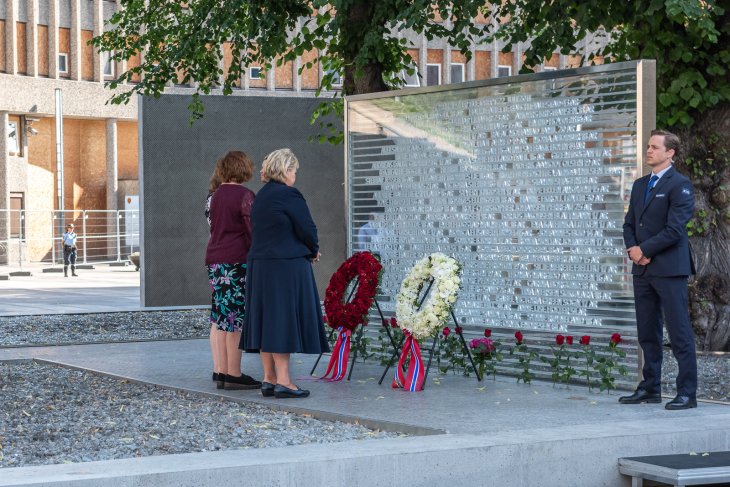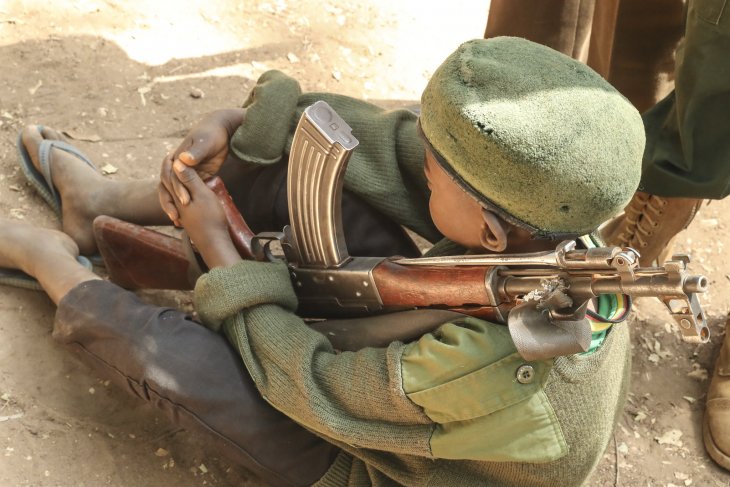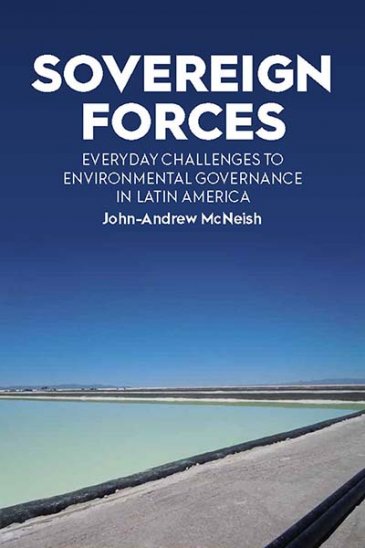by Maria Rashid, Stanford University Press, 2020. 288pp. ISBN: 9781503610415 Plenty of social scientists and humanities scholars are preoccupied with the technics of warfare, such as lawfare, drones, “low intensity warfare” and the shifting spaces of war. Yet, attention to a traditional means of war, that is, the institution of the military and its constituting… Read more »
Expecting the exceptional in the everyday: Policing global transportation hubs
Global transportation hubs such as airports and maritime ports have become vital spaces for the international networked economy. Global economic opportunities depend on the effective flow of people and things, and make use of the different infrastructures and modes of the transport system. For instance, around 80 percent of global trade in goods, measured by… Read more »
Can Peace be Researched? Revisiting a 55-Year-Old TV Program
I was reminded recently that a 55-year-old TV program about PRIO and peace research is currently available on the website of NRK, Norway’s public radio and TV company. You can access it here.

Johan Galtung in the TV programme from 1966.
The two-part program was broadcast on 18 and 25 October 1966. NRK does not have any information about when it was shot, but papers in PRIO’s old files indicate that it was probably earlier in the fall, while a long sequence from an inter-nation simulation exercise was recorded in the spring the same year [1].
The program is moderated by Mette Janson with extensive narration by PRIO’s founder and then director, Johan Galtung.Read More
22 July 2011: Contested Closures
As part of PRIO’s contribution to the 10 year commemoration of 22 of July, the author challenges perceptions of justice after mass atrocity that equates justice with law and criminal justice with closure.

22 July Memorial. Photo: Ann Kristin Lindaas / KMD / CC BY-NC 2.0
After mass violence, “the promised exercise of legal justice — of justice by trial and law — has become civilization’s most appropriate and most essential, most ultimately meaningful response to the violence that wounds it” the U.S literary critic Shoshana Felman argued in her book The Juridical Unconscious.Read More
Rethinking and Revising the Theory of Network-centric Warfare
If we take a step back and cast a reflective eye over the evolutionary trajectory of western military thought, we will find that in around the 1990s—as Information and Communication Technologies (ICTs) began to proliferate—discussions regarding the latest Revolution in Military Affairs also started to gather pace. It was in this context that some military… Read more »
Modular Sovereignty and Infrastructural Power: The Elusive Materiality of International Statebuilding
Space and materials matter. But how? My article (Open Access) in Security Dialogue explores what spatial and material arrangements reveal about the way international statebuilding exerts (sovereign) power. Statebuilding interventions support the establishment of sovereign states by taking control of, arranging and ordering spaces. This was immediately apparent when I first entered the Mogadishu International… Read more »
The New Pattern of Conflict in Myanmar
A new conflict pattern has appeared in Myanmar. Amidst a spiraling economic, social and health crisis, armed fighting is no longer confined to ethnic minority areas but has cropped up in cities and regions where the ethnic Bamar are in majority. They see themselves as pursuing a nation-wide resistance. Preventive diplomacy is needed to stop the country’s descent into omnipresent civil war.
From protests to armed struggle
Following Myanmar’s military coup on 1 February 2021, an unprecedented non-violent Civil Disobedience Movement (CDM) emerged and spread to most of the country. After some hesitation, the military (Tatmadaw) launched a brutal crackdown. The Tatmadaw’s reaction was not new. In 1988, it crushed a revolt in Yangon, killing thousands. In the 1990s, it killed much greater numbers of civilians when defeating the Mong Tai Army in Shan State and destroying the strongholds of the Karen National Union (KNU) in Kayin State. In 2016–17, it raped, murdered and burned the villages of the Rohingya in Rakhine State, driving 800,000 across the border to Bangladesh. These are just the worst examples.Read More
Time will tell – Defining violence in terrorism court cases
Counter-terrorism measures are characterized by pre-emptive logics: suspicious behavior must be detected and captured before it materializes into terrorist attacks. Terrorist networks need to be mapped and surveilled to prevent the moving of funds or weapons. Through increased regulations, these pre-emptive dynamics increasingly find their ways to the domestic judicial systems in Europe. One concrete… Read more »
1 in 8 Children Are at Risk of Being Recruited by Armed Actors
The recruitment and use of children as soldiers is one of the United Nations Security Council’s ‘six grave violations’ against children in times of war, as well as one of the most significant consequences of armed conflict in terms of children’s wellbeing. On 30 November, Save the Children launched its new report Stop the War on Children: A crisis of recruitment. The report is based on a new mapping of children at risk of being recruited or used in armed conflict conducted at the Peace Research Institute Oslo (PRIO).

Photo: UNMISS / CC BY-NC-ND 2.0
Our findings are quite alarming: We find that, in 2020, approximately 337 million children (more than 1 in 8) were living in a conflict zone in which one or more actors recruited children. We also find a worrisome upward trend. Our estimates suggest that the risk of recruitment has steadily increased over the past 30 years, with the highest recorded number of children at risk in 2020.
Good Reads: Resource Sovereignty
Green Curses research project member Dr. John Andrew McNeish, Professor at the Faculty of Landscape and Society at the Norwegian University of Life Sciences, has just published two books on contestations over natural resources.
 The first book, a monograph authored by McNeish and entitled Sovereign Forces: Everyday Challenges to Environmental Governance in Latin America, looks at diverse claims to sovereignty over natural resources in the Latin American context. It considers how sovereign claims made from below – by indigenous and peasant peoples – are a critical part of struggles over power, territory, and belonging connected to natural resources. Latin American states are a product of these struggles.
The first book, a monograph authored by McNeish and entitled Sovereign Forces: Everyday Challenges to Environmental Governance in Latin America, looks at diverse claims to sovereignty over natural resources in the Latin American context. It considers how sovereign claims made from below – by indigenous and peasant peoples – are a critical part of struggles over power, territory, and belonging connected to natural resources. Latin American states are a product of these struggles.
The second book, entitled Our Extractive Age: Expressions of Violence and edited together with Judith Shapiro at American University, examines the intimate interconnection between natural resource extraction and violence.
In mid-November, Green Curses project member Dr. Kendra Dupuy had the chance to sit down with Professor McNeish to discuss an important topic raised in Sovereign Forces: the connections between resource sovereignty and environmental governance.Read More